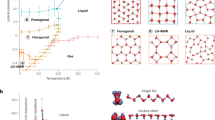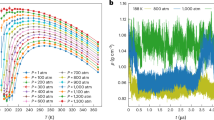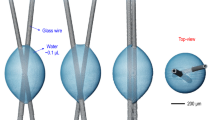Abstract
IT is known that one of the methods of separating heavy water consists in the fractional distillation of ordinary water. I find that relatively strong enrichment of diplogen occurs during the slow evaporation of water. About three years ago a bottle containing 25 litres of distilled water was prepared for an experiment. The bottle was not used, and the water slowly evaporated leaving about 600 c.c. residue. The measurements showed that this water had a density of 1.0016 (4° C.). For comparison, I have evaporated by boiling a certain quantity of water to 1/60 of its initial volume. The residue had, however, a density of 1.0001. It is evident, therefore, that the action of slow evaporation is more efficacious than the action of boiling.
This is a preview of subscription content, access via your institution
Access options
Subscribe to this journal
Receive 51 print issues and online access
$199.00 per year
only $3.90 per issue
Buy this article
- Purchase on SpringerLink
- Instant access to full article PDF
Prices may be subject to local taxes which are calculated during checkout
Similar content being viewed by others
References
D. B. Luten, J. Phys. Rev., 45, 162; 1934.
H. A. McKay, NATURE, 133, 611, April 21, 1934. E. W. Washburn, E. R. Smith, Science Abstracts (S.A.), 37, 434; 1934. E. S. Grifilan Jr., J. Amer. Chem. Soc., 56, 406; 1934.
Author information
Authors and Affiliations
Rights and permissions
About this article
Cite this article
TUCHOLSKI, T. Increase of the Percentage of Diplogen in Water during very slow Evaporation. Nature 134, 29 (1934). https://doi.org/10.1038/134029b0
Issue date:
DOI: https://doi.org/10.1038/134029b0
This article is cited by
-
Concentration of Heavy Water by Spontaneous Evaporation
Nature (1934)



